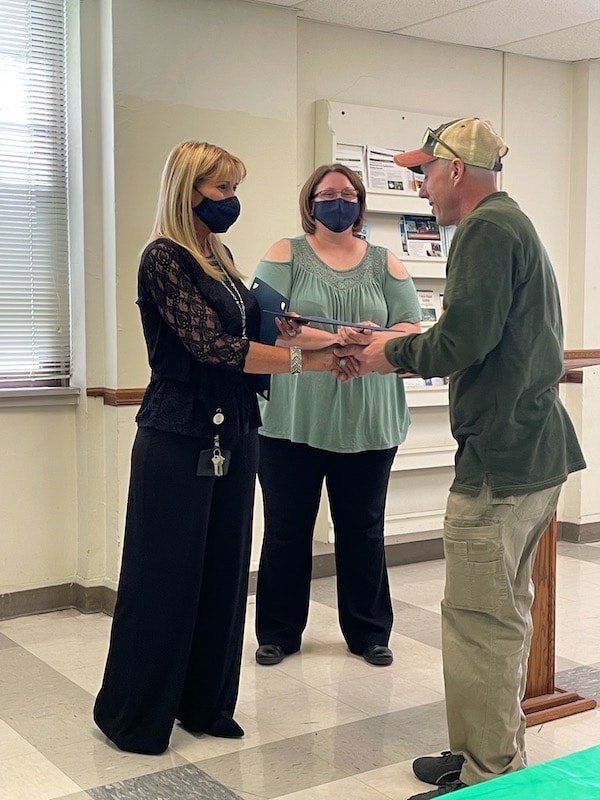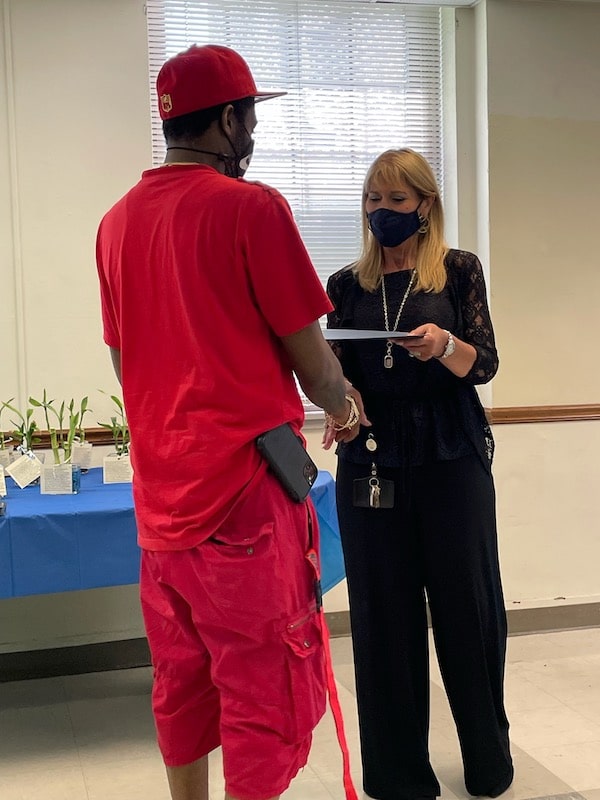
The Cambria County Reentry Service Center in Ebensburg, Pennsylvania recently hosted a summer transition celebration to honor 38 probationers who successfully completed the center’s intensive evidence-based reentry program.
GEO Reentry Services runs the Cambria County RSC, a non-residential reentry center, on behalf of Cambria County Probation Services. Daily operations are supervised by RSC Program Manager Julie Boring and center staff.
About 30 guests — including Cambria County Commissioner Scott Hunt, President Judge Norman Krumenacker and Judge Timothy Kiniry of the Cambria County Court of Common Pleas, local probation officials and participants’ families — attended the June 25 transition ceremony at an offsite location to watch participants receive their certificates of completion.

Cambria County District Attorney Gregory Neugebauer served as the event’s keynote speaker, and County RSC Director Toni White, Judge Tamara Bernstein, and RSC Graduate DeMarko Sutter also made remarks. All present followed local COVID-19 health and safety guidelines including masks and social distancing.
Most of the graduating participants had completed a modified version of the program consisting of months of online and in-person classes at the RSC, intensive treatment and training, and ongoing testing for drug and alcohol use, all designed to prepare participants for eventual reentry into their communities as productive citizens.

Even during the pandemic, conducting graduation events has remained as important as ever for GEO Reentry reporting centers in Pennsylvania, since for program participants, being recognized for their accomplishments continues to serve as a motivator for success once they leave the RSC.
The Cambria County Reentry Service Center, located at 499 Manor Drive in Ebensburg, opened in 2012 to alleviate prison overcrowding and tackle recidivism. Since then, Pennsylvania corrections officials have attempted to reshape reentry programs using evidence-based programming like that used at the RSC. GEO Reentry Services delivers cognitive behavioral treatment to help participants’ break the cycle of criminality, and participants focus on improving communication skills, problem solving, decision making, anger management, employment readiness training and more.
